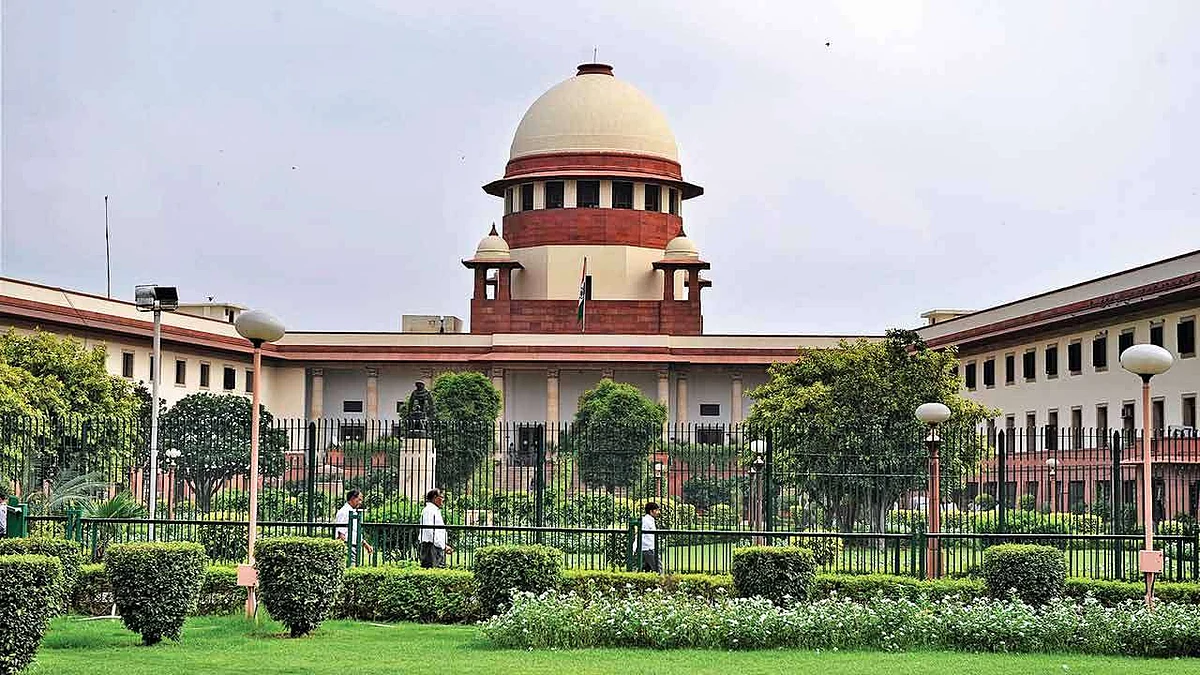Supreme Court agrees to hear after April 15 PIL on speedy trial in cases against politicians
The Supreme Court on Friday agreed to hear after April 15 a PIL which has sought expeditious trial of criminal cases against lawmakers and speedy investigation by the CBI and other agencies

The Supreme Court on Friday agreed to hear after April 15 a PIL which has sought expeditious trial of criminal cases against lawmakers and speedy investigation by the CBI and other agencies.
A bench headed by Chief Justice N V Ramana was urged by senior advocate and amicus curiae Vijay Hansaria that the plea needed to be listed for urgent hearing as despite various directions of the apex court on expeditious trial of politicians, nearly 2000 cases are pending trial for the last five years.
At the outset, Hansaria sought an urgent interim order saying that a detailed 16th report on pendency of trials against lawmakers in the country has been filed and as per it, many criminal cases are pending in lower courts.
Outside they can wait for years. No problem. When it comes to the Supreme Court and you enter into the Supreme Court, it (the case) will become very urgent, said the bench which also comprised justices Krishna Murari and Hima Kohli.
This is a public interest litigation (PIL). We have passed some orders. Now it is going on. Please wait for some time. The problem is that the judges have to be available... If I constitute a special bench for this case then I will disturb two benches. On a Friday, can I disturb two benches? the CJI said.
The CJI, after being urged by the amicus curiae, assisted by lawyer Sneha Kalita, agreed to hear the plea after April 15.
The bench said, meanwhile, it can allow some interim applications of some high courts seeking transfer of some special judges conducting trials against lawmakers on various grounds.
Earlier, the bench, on February 9, had agreed to consider listing for early hearing the PIL.
Hansaria had said a fresh report, giving details of the pending cases against serving and former MPs, MLAs and MLCs, has been filed with the court and urgent, stringent steps are needed for expeditious disposal of the pending criminal cases.
According to the recent report, a total of 4,984 cases are pending against Members of Parliament and Members of Legislative Assembly/Council out of which 1,899 cases are more than five years old.
The report stated that the total number of cases pending as of December 2018 was 4,110; and as of October 2020 it was 4,859.
Even after disposal of 2,775 cases after December 4, 2018, the cases against MPs/MLAs have increased from 4,122 to 4,984. This shows that more and more persons with criminal antecedents are occupying the seats in Parliament and state legislative assemblies. It is of utmost necessity that urgent and stringent steps are taken for expeditious disposal of pending criminal cases, said the report filed through advocate Kalita.
The top court has been passing a slew of directions from time-to-time on the plea filed by advocate Ashwini Upadhyay for ensuring expeditious trial of cases against lawmakers and speedy investigation by the CBI and other agencies.
Hansaria had said the status report filed by high courts also shows that special courts are constituted in some of the states whereas, in others, the courts of the respective jurisdiction are conducting trials in terms of the directions passed from time to time.
On November 24 last year, the top court had asked the Allahabad High Court to issue a fresh notification to set up special magisterial courts to try minor offences involving lawmakers and ensure allocation of cases to sessions or magisterial courts depending upon the gravity of offences, saying the non-setting up of such courts in Uttar Pradesh was based on an evident misconstruction of its orders.
The top court had taken exception to the non-setting up of special magisterial courts in Uttar Pradesh for trying lawmakers in minor offences and said the notification issued by the high court on August 16, 2019, was based on an evident misconstruction of its directions.
The order had come on pleas raising the legal question of whether minor offences, triable by magisterial courts, against lawmakers can be prosecuted before a special court presided over by a sessions judge who is senior to a judicial magistrate.
Follow us on: Facebook, Twitter, Google News, Instagram
Join our official telegram channel (@nationalherald) and stay updated with the latest headlines